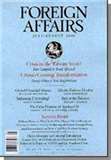The Christian church once again experiences dynamic changes, but those who speak of Christianity’s demise indicate a sense of American/European chauvinism. The color of the church is changing, certainly, as its main growth now takes place in Africa and Asia and South America, but the church is alive and well.
The church has gone into reverse mode in Europe, though signs of awakening dot the landscape. In America, the record is mixed. Some churches have died or are dying, but others exhibit glowing life. Churches of ethnic immigrants, for example, thrive in some communities and have literally replaced the older, dying churches of European origin.
 Is the church in America losing its young people as many polls indicate? Dr. Chris Seiple, president of the Institute for Global Engagement, argues otherwise in an article in Foreign Affairs. His words are a rebuttal of a previous article in that magazine which concluded that young people were opting out of religion.
Is the church in America losing its young people as many polls indicate? Dr. Chris Seiple, president of the Institute for Global Engagement, argues otherwise in an article in Foreign Affairs. His words are a rebuttal of a previous article in that magazine which concluded that young people were opting out of religion.
Dr. Seiple speaks of those Christians with which he is most familiar: “Theologically orthodox (lowercase o) and seeking to be biblically faithful, this sector is . . . relatively silent and leaderless but large. This group is of all ages, but they tend to be younger. They do not identify with capital-E Evangelicals—whose national and global reputation is political, strident, and unforgiving.”
He continues: “Instead, if the people in this group use the term at all, they use it with a lowercase e. They want to be defined by what they are for—an orthodox reading of scripture, the interpretation and application of which they must faithfully grapple with—instead of what they are against. For example, they want to be seen as being “for marriage” and “pro-life” instead of anti-gay and anti-abortion. In other words, they largely hold the same values as Evangelicals, they just aren’t angry about it.”
The church has gone through periods of tremendous change from the time the apostle Paul took the gospel to the Gentiles. Perhaps the fact that Dr. Seiple’s discussion was published in Foreign Affairs and not in a religiously oriented magazine hints of the new frontiers for tomorrow’s church in this country. If so, American Christians must learn new vocabularies and acquaint themselves with a larger world, as Paul, the orthodox Jew, did.

